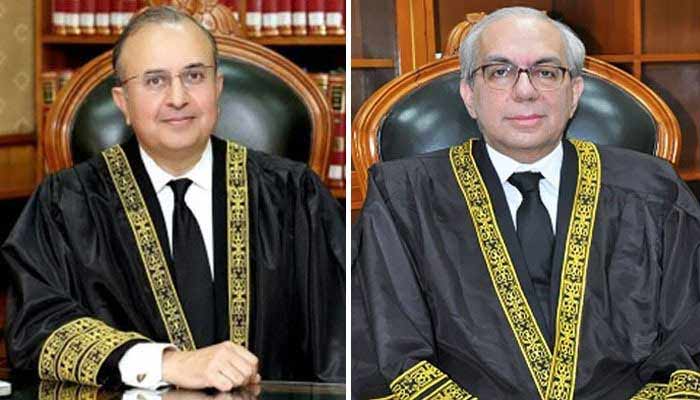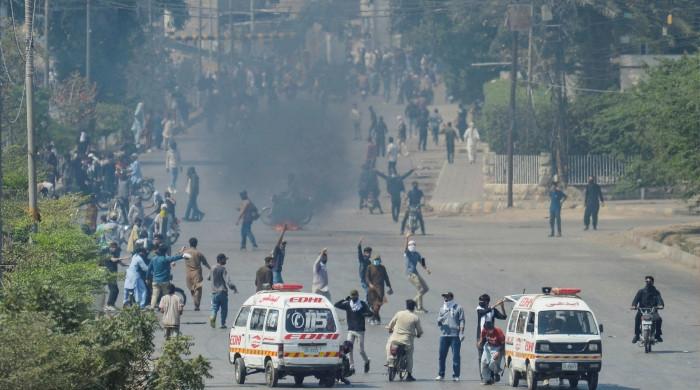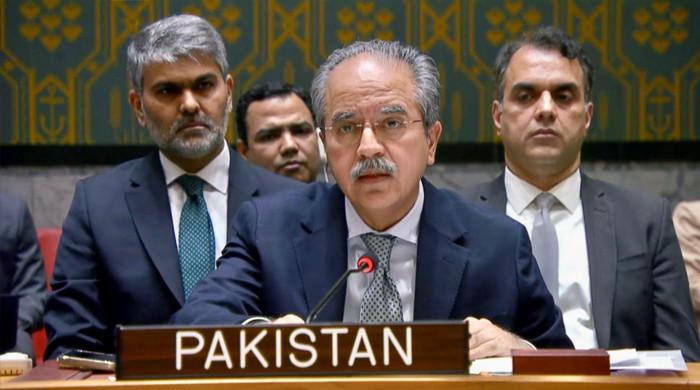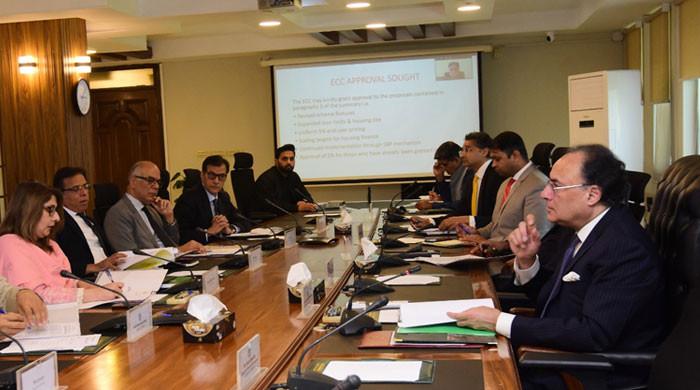SC judges warn new SJC code of conduct threatens 'judicial independence'
Justice Shah and Justice Akhtar express concern over inclusion of IHC CJ in judicial council
October 21, 2025

ISLAMABAD: Two members of the Supreme Judicial Council (SJC), Justice Mansoor Ali Shah and Justice Muneeb Akhtar, have raised strong objections to the recent approval of amendments to the judges’ code of conduct by a majority of the council’s members.
In a detailed letter addressed to the SJC, the two judges questioned the process through which the amendments were approved and expressed concern over the inclusion of Islamabad High Court (IHC) Chief Justice Sarfraz Dogar in the council, noting that his transfer to the IHC is currently under challenge before the Supreme Court.
The development came after the SJC meeting revised the code of conduct for judges, prohibiting them from speaking to the media or taking part in any public debate on political issues.
Chief Justice of Pakistan and SJC Chairman Justice Yahya Afridi chaired the meeting at the Supreme Court of Pakistan on October 18.
The meeting was virtually attended by Justice Shah and Justice Akhtar through video link, while Justice Aalia Neelum, Chief Justice, Lahore High Court and Justice Sardar Muhammad Sarfraz Dogar, Chief Justice, Islamabad High Court, attended in-person.
According to an amended code of conduct, "[Judges] shall not have any interaction with the media, especially in relation to issues which may give rise to public debate or adversely affect institutional collegiality and discipline," read the statement issued last week.
In the letter, the two judges warned that the proposed changes could weaken judicial independence, restrict transparency, and centralise authority in a single office at a time when the judiciary is already under strain following the 26th Constitutional Amendment.
“We are passing through testing times, when democracy itself faces strain and constitutional institutions are being tested. In such moments, a strong, fearless, and independent judiciary is the last and only refuge of the people. Any measure that curtails that independence or can be weaponised to discipline, silence or control judges must be viewed with the utmost caution and resisted firmly", the judges wrote in their letter to the SJC.
The judges urged that the matter of amendments be postponed until the Supreme Court decides petitions challenging both the 26th Constitutional Amendment and the status of the current SJC chairman.
"Experience has shown that when the institution itself is under strain —especially in the aftermath of the 26th Constitutional Amendment — such concentration of authority makes the system more fragile, not stronger. Judicial independence cannot rest on the perceived virtue or courage of one person; it must be distributed, not centralised," the two judges stated.











